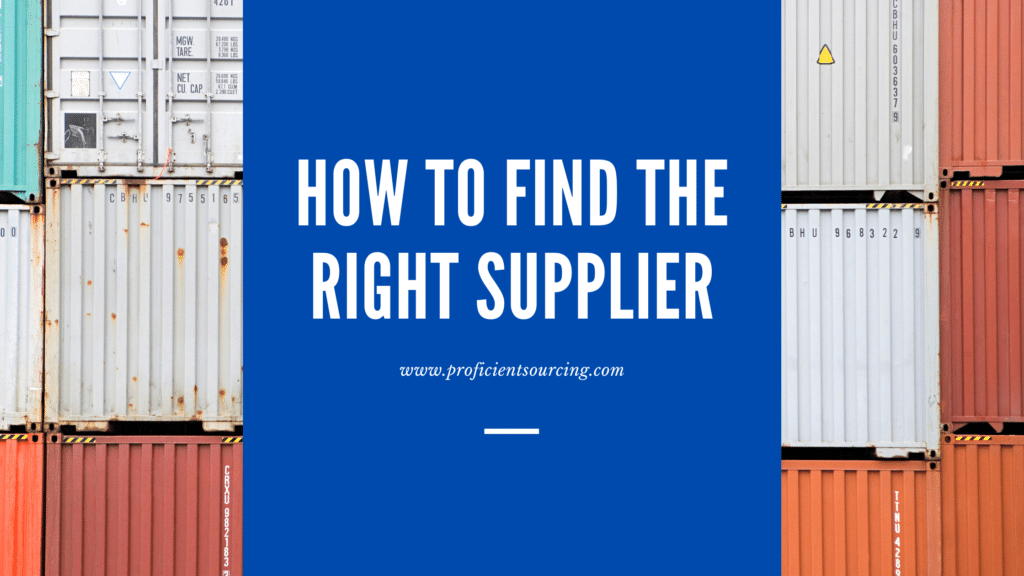
We did research on this question, as our particular interest is OEM’s involved with tanks, pressure vessels (see below article), and building large equipment and machinery. At Proficient Sourcing our business is helping you find the right supplier candidates. We are one answer to our question, and we hope you’ll give us a try.
Most of what we found had to do with large organizations. We, on the other hand, offer supplier candidates that are smaller companies—under 500 employees. So the recommendations need some modifications to fit with this population. But overall, we found a number of good suggestions, and here are a few:
- Customer Service: What are your requirements? A large OEM might have needs for information other than the day shift, which might occur when the supplier is not operating. Our view is that a small company supplier that’s been in business for many years MUST have good customer service. That’s one way we select the companies for our network, and long life generally means satisfied customers. If you want referrals, asking for referrals can lead to NDA violations, so these can be difficult. The bottom line here is that if you engage a prospective supplier in a discussion you will get a good idea of how they will respond to a service inquiry later. You may also have to deal with different individuals depending upon the exact issue in question.
- Check for needed certifications. This seems pretty obvious, but there are doubtless cases where the supplier search progressed (consuming time) and at some point the potential buyer discovered the supplier candidate lacked a necessary certification. In some cases website maintenance is slow, and recent certifications may not be listed. So if some candidate looks good, but you can’t find the needed certification on the website, it might be worth contacting that company to ask the specific question.
- Financial Risk: Again, the suppliers we deal with are all small companies. While specific financial details may not be easy to get, if the company has a long history, they are likely to be financially solid. If you find attractive candidates no-bidding your inquiries, one problem could be expensive material costs. In a small business material purchases can present major cash problems, as these payments often must occur before the final product is paid for. Building a large pressure vessel might be a good example, as a large stainless purchase would be needed and construction might take 2-3 months, well beyond the date payment for the stainless is required. We have suggested, when possible, that a relatively large OEM consider either some early payments or supplying the material for a large project for this very reason. If you buy the materials there’s also the advantage of avoiding markup, which could make this decision a significant cost savings to the OEM. This is but one example of looking beyond your normal terms in order to come to a good supplier outcome.
- Scalability: Is your supplier candidate capable of the growth your requirement might require? This is difficult to determine. Our experience is the procurement population seems reluctant to suggest future growth potential. Whether this is a security issue or reluctance to predict the future we cannot say. But if, for example, there’s a good chance of significant growth of the item being bid on, that would motivate some shops to bid when they might otherwise no quote your work. If you do anticipate the possibility, you might look at the total capacity of a supplier candidate. If you do not become a favored customer, you may find a secondary position if the supplier gets a more attractive future opportunity that uses the capacity you were counting on. The point is if you think you will need significantly more capacity from a new supplier, we suggest you become a customer of choice.
- Internet searching: Here’s an interesting quote we saved some time ago. Shopify is probably the source:
- “Over the last handful of years, we’ve become accustomed to being able to easily search Google and find what we’re looking for in the first few search results. However, many suppliers haven’t kept pace with the internet or Google’s algorithm changes. Their websites are usually old, sparse on information and not search engine optimized.
So how do you find suppliers on Google? For possibly the first time ever, you’ll need to explore page two of Google search results and beyond. You’ll also want to use a variety of search terms”
We have found keeping websites up to date is not a strength of our small manufacturers, so this quote is all the more relevant.
As a final thought, if you are a large business seeking a supplier that’s a smaller company, always keep in mind the resources available to that supplier may be far fewer than yours. This means things like website updates, cash available for expensive materials or equipment modifications, or future surplus capacity may be worthy of extra attention to be sure your interests are served.
We are in business to help you with all these issues. In fact, we can not only offer candidates for most metal and plastic requirements, but in doing so will save you a great deal of time. Just give us a call; we are ready when you are: (513) 489-5252

